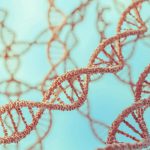
Genetic Counselling
Genetic counselling helps individuals and families affected by or at risk of genetic disorders to understand and adapt to the disease.
The genetic counsellor will collect a patient’s personal and family health history and use this information to determine how likely it is that they, or a family member, has a genetic condition. Depending on the particular situation, the genetic counsellor may recommend a genetic test be conducted.
Reasons for genetic counselling:
- If a doctor has observed symptoms that may indicate a genetic disease (cardiac, neurodegenerative, metabolic, etc).
- If there exist instances of hereditary disease in the family: hereditary cancer, congenital malformations or chromosomal alterations.
- If more than 2 close relatives in the family suffer or have suffered from the same disease.
- If a patient suffers from infertility, or they have had two or more miscarriages, or their baby was stillborn.
- If a couple is related and are considering having children.
- If a baby has a developmental difficulty or congenital malformation.
- If a woman is thinking of becoming pregnant, and especially if they are over 35.
- If there are abnormal findings during pregnancy that may suggest possible genetic or chromosomal disorders.
- If a patient belongs to an ethnic group with a high incidence of genetic diseases.
Procedures
A genetic counsellor’s job can be broken down as follows:
- Interpreting family and medical history to assess the risk of occurrence or recurrence of a given disease.
- Educating about inheritance, testing, management, prevention, resources and research.
- Counselling (sometimes alongside a psychologist) to promote informed decisions and adaptation to the risk or condition.
Phases of genetic counselling:
- Identify risk.
- Pre-test genetic counselling.
- Informed consent.
- Performance of molecular analysis.
- Post-test genetic counselling.
- Follow up.































